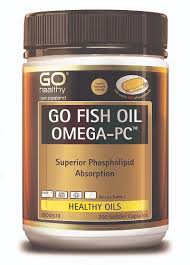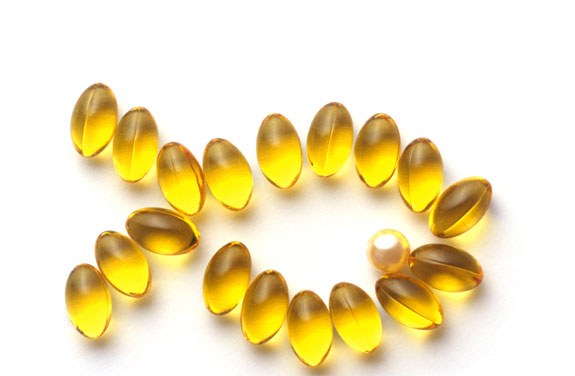If you are confused about the right fish oil dosage, you may be wondering that too little won’t work and too much will harm your health.
How do you find out the right quantity so that your supplement impacts you optimally?
The first thing (and the most important one) is that you should consult a doctor before beginning an omega-3 supplementation. Some formulations of fish oil have side effects which may impact other health conditions you have. So be safe and consult a medical practitioner before you even begin taking these supplements.
The minimum fish oil dose provides 400 mg DHA and 800 mg EPA each day to a healthy person – which counts up to two one gram softgels made from high quality fish oil. Most physicians prescribe a base amount that’s slightly higher than the minimum, which is usually 600 to 800 mg DHA and 1200 to 1600 mg EPA. This accounts for three to four one gram softgels each day.
This fish oil dosage should help a grown adult to match his daily requirement of omega-3 fatty acids. In case, a larger dose has been prescribed, you must remember to split the intake through the day – preferably during meals.
Apart from that, you should also consider a few other factors to determine what fish oil dosage is best suited for you. These factors include size, age, diet, health conditions and other drugs. Upon visiting a doctor, he would bear all these factors in mind before prescribing a particular dosage of fish oil to you so it is advisable that you refrain from making your own decision and consult your physician first.

If you must however begin supplementation before you can consult a doctor, start with the base amount of three to four one gram softgels each day for a month. If you do not notice any improvement, increase your fish oil dosage by one extra softgel everyday.
If you do not notice any improvement still after a period of two weeks, you may be advised by your doctor to add another softgel to your daily intake. When you achieve the desired results after reaching an optimal dosage, maintain the intake for a fortnight before you reduce it to the previous lower dosage.
If there is no decline in your condition, then this is your optimal fish oil dosage. If however, you do think that your condition is worsening again, go back to the higher dosage that was benefiting you.
It is not a good idea to keep increasing your dosage beyond a limit. If your condition worsens at a high dose, try to alternate between a lower dose and the higher one instead of consistently increasing the number of softgels you take.
Remember that diet is the most important factor for your health condition. Supplements are only meant to provide you with the nutrients that are lacking in a healthy diet.
To identify the best brand of fish oil capsules that will meet your daily requirement without subjecting you to uncomfortable side effects, check out this short special report – click here
How To Find The Right Dosage of Fish Oil
- What’s the right height for a boy?
- Or the right weight for a girl?
- How much food is right for you every day?
The answer to these questions, as for that on the right dosage of fish oil, is the same: It depends.
A list of benefits from taking fish oil supplements, most related to their anti-inflammatory activity, includes protection from colon cancer, depression, asthma, menstrual cramps, diabetes, multiple sclerosis and rheumatoid arthritis. Fish oil lowers triglyceride levels and reduces heart disease risk.
If you are taking fish oil for the health promotion effect, then 3 grams of fish oil a day is the right dosage. It will provide you with 1 gram of DHA, a long-chain omege 3 fatty acid that’s the critical ingredient of fish oil.
Omega 3 is found predominantly in fatty fish – trout, white tuna, halibut, mackerel and salmon. Other seafoods rich in omega 3 are oysters, sardines and herring. Consuming any of these fatty fish can significantly reduce triglycerides.

However, if you are taking it for treatment of a medical condition, the dosage of fish oil will differ and you must consult your medical advisor or practitioner to decide on what’s right for you. An option that allows you to enjoy the benefits of fish oil, without the risks, is to take fish oil capsules.
Another alternative to fish oil for your omega 3 requirements is to take ample amounts of ground linseeds or linseed oil (1 to 2 tablespoons a day) in your diet. Plant sources, however, are a poorer source of long chain omega 3 fatty acids like DHA and EPA. Supplementary DHA derived from algae is also available as a commercial product, as Omega Zen-3.
Once you have decided on the ideal dosage of fish oil you need, you can pick from among several brands. Choose one that uses oil from fish caught in the cleanest and coldest waters, preferably those far from commercial shipping lines and industrialized countries where the highest risk of water contamination by wastes exists.
Fish oil capsules are made safer by molecular distilling, which removes any mercury or other heavy metals, dioxins, PCBs and other contaminants. So a lower dosage of fish oil will deliver all the benefits.
To learn more about the right dosage of fish oil supplements that many other health enthusiasts like you take every day for health, fitness and longevity, check out this link – click here.
The Benefits of High Dose Fish Oil
One can either eat fatty fish or ingest supplements of fish oil to obtain nutrients such as omega-3 fatty acids. Sea fish like mackerel,tuna, salmon, mullet, sturgeon, anchovy, bluefish, herring, sardines, menhaden and trout are sources of high dose fish oil and every 3.5 ounces of each of these fish offers 1 gram of omega-3 fatty acids.
Fish oil supplements address a range of health conditions including those related to the heart and blood system – high blood pressure, high triglyceride levels, risk of heart attacks and strokes. Fish is also considered to be ‘brain food’ as it has shown to benefit people with psychosis, depression, Alzheimer’s disease and attention deficit hyperactivity disorder.

High dose fish oil supplements are obtained from fish like herring, mackerel, halibut, tuna, cod liver, salmon, seal blubber and whale blubber. With negligible amounts of vitamin E, such supplements are prevented from spoilage. Along with fatty acids like eicosapentaenoic acid (EPA) and docosahexaenoic acid (DHA), fish oil supplements can also contain other nutrients like iron and calcium.
Women often ingest fish oil to avoid painful periods, complications with pregnancy, breast pain and high blood pressure levels. Studies have also suggested that omega-3 fatty acids can bring relief to those who suffer from movements disorders, developmental coordination disorders, diabetes, asthma, obesity, dyslexia, osteoporosis, kidney problems, psoriasis and some forms of cancer.
However the preparation of fish determines the kind of health benefit you obtain. If fish is eaten baked or broiled, you will receive a lot more health benefits than if you were to consume it in fried form. Since many people cannot use their judgment to determine which fish is good for their health and which is not, they opt for high dose fish oil supplements instead.

Most benefits of fish oil stem from the presence of omega-3 fatty acids. Since the body does not produce any omega-3 fatty acids and it is not very practical to eat a lot of fish, supplements of fish oil have become very common among those who need to match the basic requirement.
Apart from health benefits, fish oil has also shown to improve skin and hair condition. A lot of people buy non-prescription supplements of fish oil as they are easily available over the counter at most nutrition stores and drug stores. However, high dose fish oil also has a few side effects and it may not be advisable that you buy a supplement for yourself without consulting a doctor.


